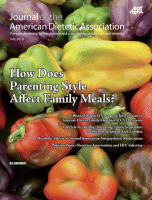
Celiac.com 03/01/2017 - Do people who eat a gluten-free diet face an increased exposure to toxic metals like arsenic and mercury, and thus possibly higher rates of cardiovascular disease, cancer and neurological effects?
That's a very possible scenario, according to a report published in the journal Epidemiology. Maria Argos, assistant professor of epidemiology in the UIC School of Public Health, and her colleagues searched data from the National Health and Nutrition Examination Survey for a link between gluten-free diet and biomarkers of toxic metals in blood and urine.
Celiac.com Sponsor (A12):
Of the 7,471 people they surveyed between 2009 and 2014, they found 73 participants who reported eating a gluten-free diet.
People on a gluten-free diet higher concentrations of arsenic in their urine, and mercury in their blood, than those who ate a non-gluten-free diet. In fact, arsenic levels for gluten-free eaters were nearly twice as high, and mercury levels were 70 percent higher.
So, does a gluten-free diet pose an actual health risk? Do people need to make any immediate dietary changes?
While noteworthy, Argos says the findings indicate the need for more studies, "to determine if there are corresponding health consequences that could be related to higher levels of exposure to arsenic and mercury by eating gluten-free."
Argos points out that the EU has in place regulations for food-based arsenic exposure, while the United States does not. The question that needs to be answered if whether rice flour consumption increases the risk for exposure to arsenic. An answer to that requires further study.







Recommended Comments
Create an account or sign in to comment
You need to be a member in order to leave a comment
Create an account
Sign up for a new account in our community. It's easy!
Register a new accountSign in
Already have an account? Sign in here.
Sign In Now